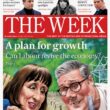The book publishing and retailing business is in turmoil. Nothing new about that. But look at the momentous things, happening in the UK right now, that will transform the industry at speed:
- In October, J.K.Rowling is launching Pottermore.com to publish Harry Potter ebooks. The author, who 14 years ago kick-started a worldwide boom in book sales, is charging into ebooks with 18,000 words of unpublished material about her best-selling characters, places and objects. JKR’s new venture underlines her own ‘conversion’ to ebooks but also underlines the fact that download editions are now out-selling hard copy fiction in the UK, US and Australia. While ebooks of the existing Harry Potter books will be sold from the site in partnership with Rowling’s (relieved) hard copy publisher Bloomsbury, there is no mistaking the significance of her decision to sell direct to her public – and also to make the works available for use on kindle, ipad or almost any other electronic device. This looks like the game-changer – evidenced by the screams of booksellers.
- From a slightly less prominent platform, that’s what celebrated London-based literary agent Ed Victor is also doing. From next January, his Bedford Square Books will be selling ebooks and Print on Demand (PoD) versions of works like Harold Evans’ “Good Times, Bad Times” (more aches for Rupert Murdoch), that are either out-of-print or whose rights have reverted to their authors. Although the celebrated literary agent says he is doing it “for the fun of it and as a service” to his clients, there is no doubting the significance of this latest venture as a way of going round the publisher and direct to the consumer. Expect many more.
- The world’s largest online retailer Amazon is in the throes of buying (for a price believed to be at least £300m) the folksy, friendly and hugely successful Gloucester-based The Book Depository (TBD). Founded in 2004, TBD (with 75% of its £100m turnover now from outside the UK) has been an online retailing phenomenon all on its own. It has grown fast on the back of offering “a larger range of books than Amazon” and uses PoD for one-off editions, rare books and lost volumes. TBD’s co-founder Stuart Felton sums up his success: “If you want the top 50 books, go to Tesco. If you want the top 1,000, go to Waterstone’s. We focus on the rest.”
- Booksellers and publishers are up in arms over the Amazon-TBD combination and are pressing the OFT (in vain) to block the deal. But James Daunt, the 47-year-old Cambridge-educated former J.P.Morgan banker who, over the past 20 years, has created a reassuringly successful chain of six eponymous bookshops (turnover about £10m) around London, has got other things on his mind. Daunt (“I don’t recognise that books are dead”) has parachuted in to run the 300-shop lost-its-way Waterstone’s chain, recently sold by the spluttering HMV group to Russian billionaire Alexander Mamut. It is an audacious move by the self-effacing Daunt (and his loyal customer, the Kensington-based oligarch) whose own shops are characterised by knowledgeable staff, their deep ranges of books, an emphasis on a pleasant experience and no discounting of prices – a bit like Waterstone’s in the 1980s. Quiet and strong.
- Academic, technical and scientific publishers are piling into Print on Demand. Which is another way of saying that millions of books will be online. And that will mean the same kind of ability to buy chapters or extracts that music-buyers have enjoyed courtesy of itunes. Bundling is all but dead – along with warehouses full of expensive stock, and many wholesalers and retailers. At the leading edge is, among others, a San Francisco start-up called Inkling which is offering interactive, multimedia-rich iPad versions of more than 100 textbooks by the chapter or complete book. As ever, you have to look East to see the leaps of progress and the South Korean government this month announced all its schools would be paperless by 2015 with “perennially-updated” online textbooks. And the recent snaffling by Pearson (owner of Penguin and Dorling Kindersley and academic imprints) of online operations from failed booksellers Borders and Angus & Robertson speaks errr volumes.
The winners will be:
- Authors, who will increasingly be able to “self publish” or keep their rights while having their books published by “new wave” ebook and PoD sites – including Amazon/TBD. Expect a lot more activity – and for the explosion to rock right back into music where so many artistes are ready to ditch the conventional (and once so-profiteering) record labels.
- Ebooks and Print on Demand will quickly dwarf hard copy sales of books right across the board.
- James Daunt. Expect Waterstone’s to be new, innovative, better – but smaller. We’ll all enjoy the rich Russian’s literary playgrounds.
- Readers and especially students. Expect widespread online renting of access to books, chapters and extracts. Paying only for what you actually want and when you want it is consumer paradise.
- And, of course, J.K. Rowling who says “I love printed paper….this year for the first time I have downloaded ebooks and it’s miraculous. I feel good about bringing it into this world.” She will inspire a new generation of authors and bookish entrepreneurs just as Harry Potter inspired a generation of children and young-at-heart adults.
There is a lot of pain in all that change, of course. But it is easier to see there will be early winners here, rather than in newspapers and magazines where online mostly means “not (yet) for profit”.
Once the dust settles, this year’s eruptions will be good news for the world’s oldest media profession.
Have you signed up?
http://flashesandflames.com
Media Fortune, Fame & Folly




Colin, this is fascinating and very timely – but these things are never as simple as they seem. I posted a few weeks ago (http://wp.me/p1u5Oe-2e) about some of the unintended side-efects of the e-book revolution… thoughts?
I thought that you may be interested in a blog posted in 2005 referring to a memo when I was at Time Life books back in 1980. http://blog.grahamsadd.com/2005/11/25_years_ago.html
Premature e-Speculation, that’s my problem!
Very interesting! Thanks.
With the publication of my first four novels, I got stuck in a little known genre named Visionary Fiction. I got offered three non-fiction books related to metaphysics, but no publisher would read my mainstream novels. What was I to do with my orphan novels but to turn to Amazon and the kindle opportunity? I am very old school. I even had coffee with William Faulkner! Now I must blog, and FaceBook, and learn to do all the e-marketing things that “experts” advise. Will a self-published e-book ever win the Pulitzer Prize? I doubt it in my lifetime. And instead of lecturing my editor about the trials of authorship, I post them on my blog.
http://writingasaprofession.wordpress.com/2011/07/15/what-every-lover-should-know-about-the-creative-artist-part-1/
Heya i’m for the first time here. I found this board and I find It truly useful & it helped me out much. I hope to give something back and help others like you aided me.